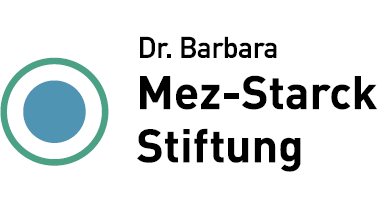


BETTER MATERIALS
PROPOSED BY COMPUTERS
Many technological advances in recent years are based on the development of novel functional materials. Often, this materials development has been done empirically. Then again, nowadays a huge data set of materials parameters is available which are increasingly obtained from calculations and simulations.
On the one hand, the Mez-Starck-Foundation supports the numerical generation of such data. On the other hand, the foundation also focuses on the identification of promising functional materials based on modern tools of data analysis. This shall be done by using methods of artificial intelligence and machine learning in close cooperation with experts in these fields.
Such an approach can be used to obtain a deeper understanding of structure-property relationships in materials, which then can lead to new concepts in materials research. In addition, potential candidates for materials with improved properties can be identified which would significantly accelerate materials development. In this context, both rational approaches which determine structural and spectroscopic properties of materials in a target-oriented way as well as combinatorial methods that automatically derive the properties of many materials shall be supported.

